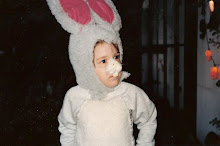--M. Merleau-Ponty, The Phenomenology of Perception
Above: David Audet in Ybor Square Space
When I was eight years old, I was young,
and I was shy. On the last day of school
I asked my art teacher to sign my yearbook,
standing out among the live oak trees,
out where we had spun clay until
our hands were dry and chalky
like the hands of gymnasts.
David pressed hard with my neon pen, leaving bold-faced
indentions upon the glossy paper. He haphazardly
scribbled and handed it over, and of course
I eagerly flipped around to find his signature before walking away.
He had given himself a beard and mustache
in his photograph. He had written
YOU'VE GOT IT / IF YOU WANT IT.
While I was reading before him
David verbally reiterated his note,
eyes catching me instructively,
holding me for a moment.
I understood, right?
I HAVE IT IF I WANT IT. BUT
I HAVE TO WANT IT.
And yes, I said of course.
Yes of course.
David Audet is the best art teacher
I think I've ever had. He had eyes
disproportionately keener than the rest of his body,
which was husky, unshaven, unkempt.
He arranged art galleries exhibiting
stale Cuban sandwiches. He constantly reeked
of body odor. He had built a deck, gingerly, around
the old oak trees to hold classes. He would simply
sit in the center of this deck with us circled around
him, and play guitar while the peacocks screamed
in circles, around us. He would have us draw him
in bursts of sixty seconds and then have us rotate,
cyclical, around one another to capture all angles.
When it rained we cried out and ran inside.
We would go into small unused rooms, smelling him
and listening to him telling us how the government had
assassinated John Lennon until the situation was too
repugnant for there to be room in it for our juvenile art.
David was prone to bursts of violent rage at his young
students. Eventually the school dismissed him, hired him
back, and dismissed him again. One wants to attribute this
either to his memories of the Vietnam War or to his
perennial occupational overexposure to paint thinner.
David Audet loved to eat avocado sandwiches and
in class he would eat them as he taught us to cast
pottery in the traditional Raku style. Sen-No-Rikyu.
David was too big in himself to fit neatly anywhere.
Even Lee Academy was too much for him. The school,
which it would admittedly be quite an understatement
to say was not the most oppressive I've encountered,
could not contain the firing glazes which interested him,
and glittered.
YOU'VE GOT IT / IF YOU WANT IT.
If his note in my yearbook had read
IF YOU WANT IT / YOU'VE GOT IT,
David would have entered the fallible
sphere of logic which his statement preexists.
But no -- his area of expertise was precisely
the precognitive moment of inspiration where the question is not,
"How best can we analyze this?"
no -- David asks, in true form for the visual artist,
"WHY WOULD ONE WANT TO ACKNOWLEDGE
THE EXISTENCE OF OBJECTS WORTH ANALYSIS, AT ALL?"
The realm where possibility is made actual
does not rest in the dry and stiffened fingertips
of some absolute objective truth which existed fully formed
thousands of years ago as it stands dusty, before me now --
no. "The only pre-existent Logos is the world itself."
This sphere begins entirely frothing in liquid slip, fires precisely
in the lowest temperatures of my immediate,
glittering desire. Here the genesis of meaning --
And here the condemnation of meaning,
Fissures caused by air and water in the clay,
As banal and violent as an act validated in its own performance.
Upon the littlest effort it takes for my fingers to wield their water
over the indentions in lumps of pliable earth, fanning and smoothing the
Thing into Being -- upon this depends the very being of the tradition itself.
Soren Kierkegaard says: life is lived forwards but
understood backwards. I had always contested this.
But what if memory were found to be like the heat left in an object
long after the fire has gone -- the residual glow of ceramic sake-cups
and pitchers, indelibly, only there after they have left the kiln.
Then we could only understand the past. David Audet's influence was to
plunge us all the more, in spite of history, into the
establishing values for the future. He became our personal history so that
when we were adults, then we might turn our heads
over our shoulders
like someone who just saw a friend walk past in a crowd.
I could not have fathomed it then, age seven,
face covered in white paint, hands covered in dust
and chalky like the hands of gymnasts.
Only over time did the man grow to glow
with a phenomenological heat. Only now I begin
chipping slow flecks off the marble
of what I learned there, still covered in paint,
David still living by the lake in a trailer next door.


No comments:
Post a Comment